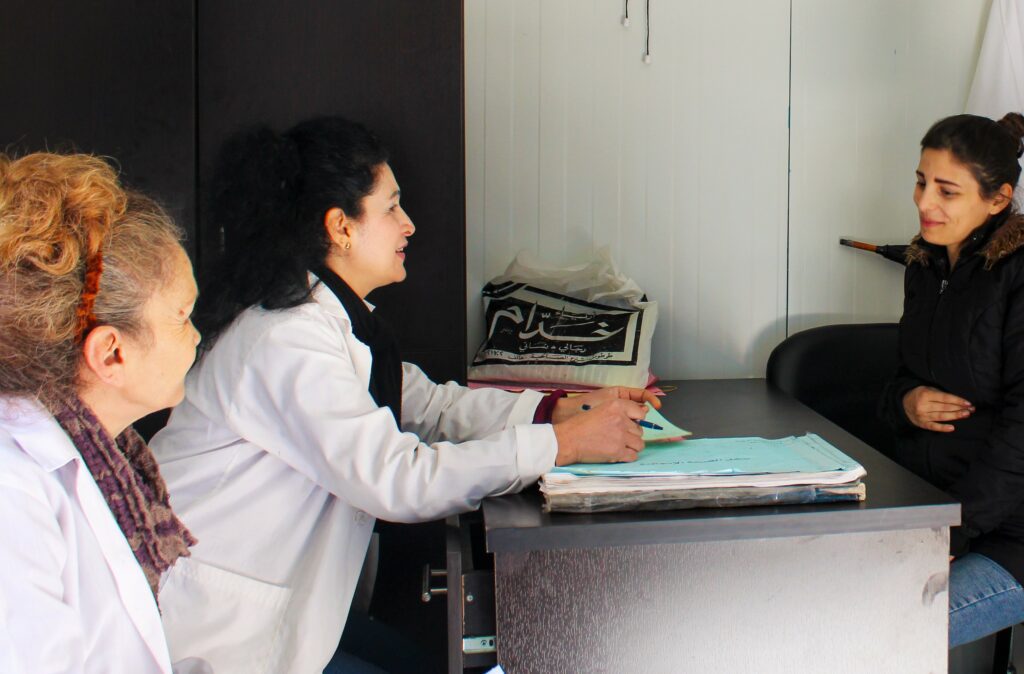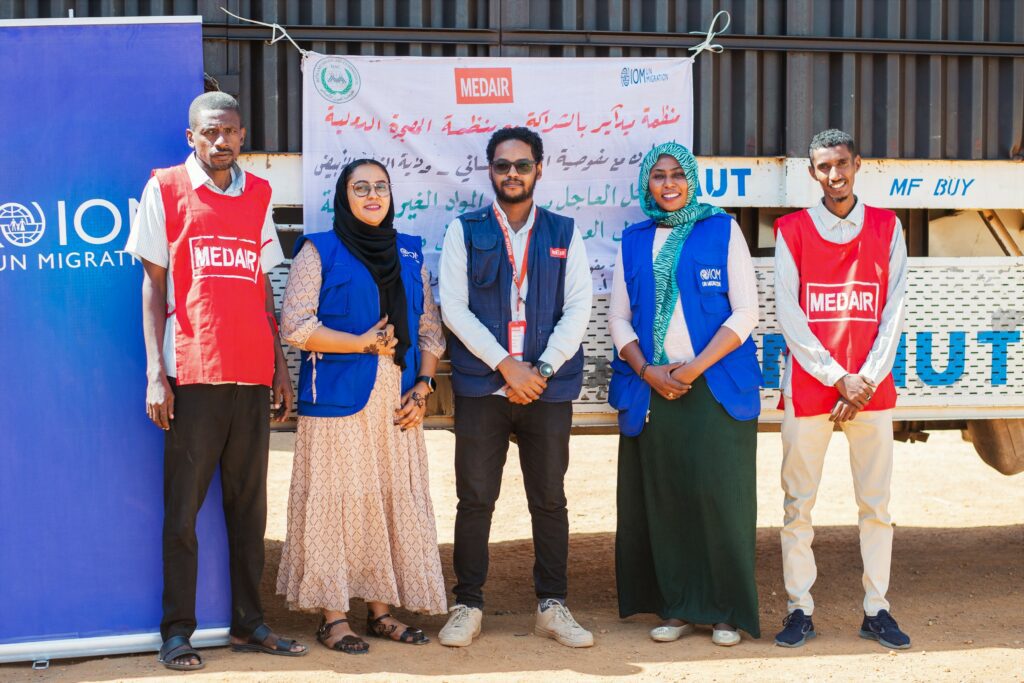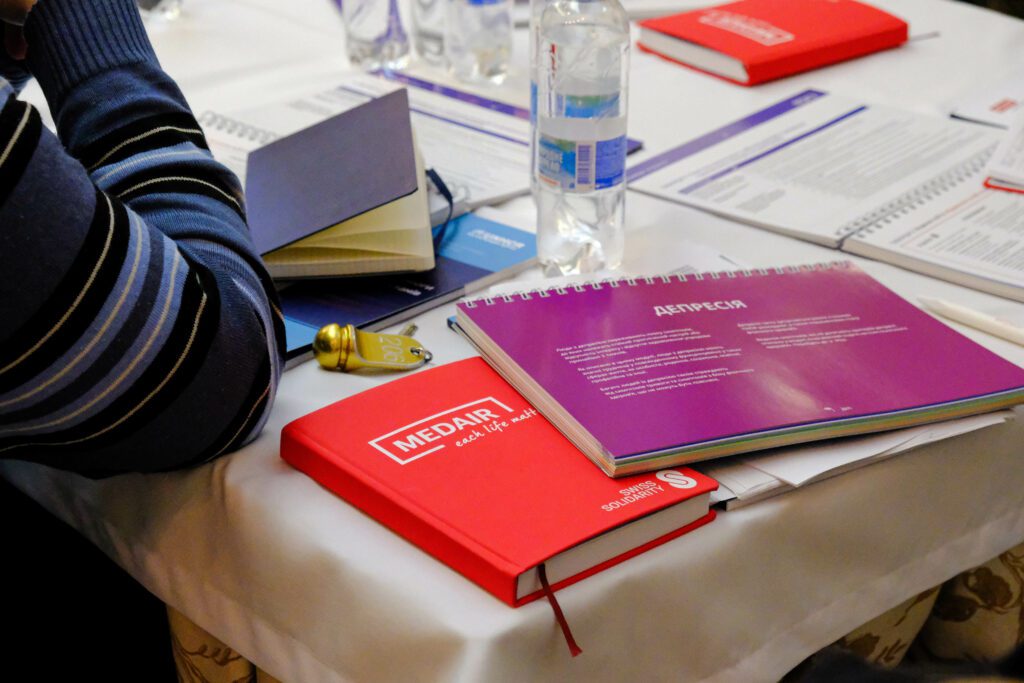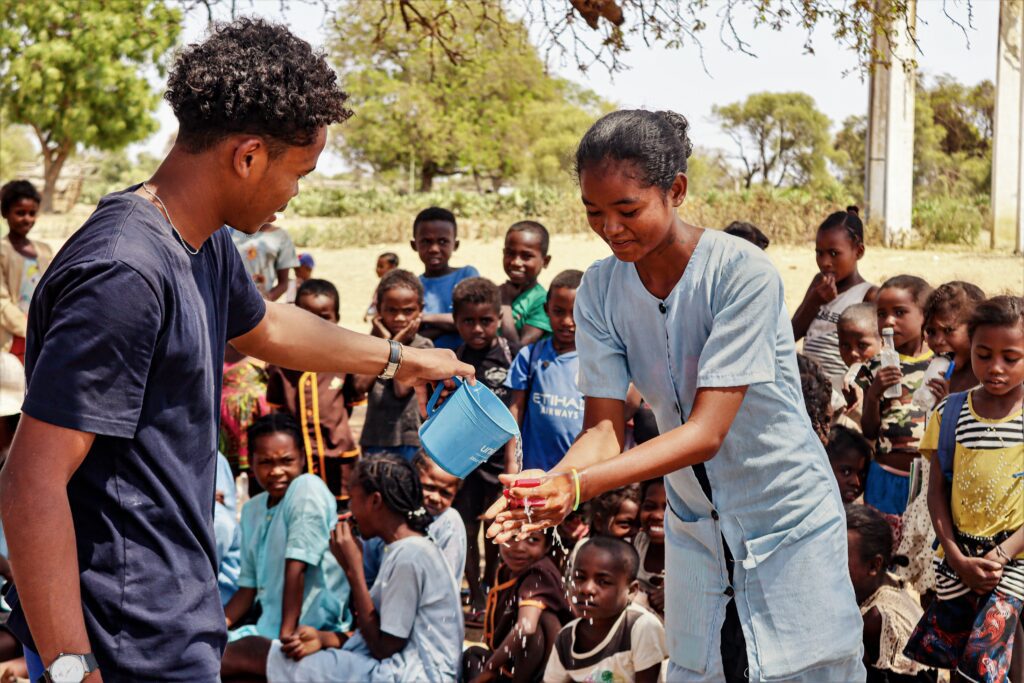Meet our team: Jonathan, Logistics Officer
3'
Jonathan (FR) works at Medair's Headquarters in Switzerland where he supports logistical operations in several of Medair's programmes worldwide. As part of the emergency response team, he is also ready to deploy within 24 hours when emergencies strike.
Jonathan (FR) works at Medair’s Headquarters in Switzerland where he supports logistical operations in several of Medair’s programmes worldwide. As part of the emergency response team, he is also ready to deploy within 24 hours when emergencies strike.
What motivated you first to work in the humanitarian field?
What I wanted most of all was for my work to mean something; to get up in the morning and help reduce misery in this world. Seeing the fruit of our efforts on the ground where we work has been incredibly rewarding and is what keeps my motivated.
What is your job at Medair?
After completing a humanitarian training 10 years ago and working in other organisations, I am now working at Medair headquarters in Switzerland as a logistics officer. I am responsible for our programmes in the Middle East and provide logistical and technical support to the logisticians there on the ground.
Logistics is at the heart of every humanitarian response. As a logistician, I have to constantly anticipate and adapt to changing circumstances in order to get help as quickly as possible to those who need it most. The diversity of these challenges is both motivating and rewarding.
You are also a part of the emergency response team who went to Haiti in the wake of Hurricane Matthew in 2016. What was that like?
When the hurricane happened, I was deployed with the emergency team right away. My first job was to quickly arrange a temporary base for our emergency reponse team so they had what they needed to respond to people’s most urgent needs.
Once the temporary base was set up, I helped with the purchase and organising of the emergency kits we distributed to hurricane survivors. It was really challenging as you can imagine to arrange all of that within the context of a disaster.
Is there one day that stands out to you from your time working in Haiti?
I remember the first and last days the most. When I first arrived, there was so much chaos it was difficult to even know where to begin. But on the last day, after doing several distributions where we passed out urgent supplies to hurricane survivors, I really was able to see our impact! These supplies really helped protect families in the wake of the disaster while they rebuilt their homes.
Now you are in Bangladesh responding to the Rohingya Crisis. What are you seeing as refugees continue to pour into the country?
As people continue coming in, the needs keep growing. Many organisations are still waiting on the local government to get official approval to start delivering aid, which means many new refugees are still not receiving any food, clean water, shelter or healthcare.
There are many more women and children than men because their husbands and fathers were killed in the violence. Many of those women are malnourished because they haven’t eaten properly in weeks since fleeing Myanmar, and can no longer breastfeed their children. Also, there are no sanitation facilities where the refugees are seeking shelter so families are at greater risk of getting sick and spreading disease.
How is this different from your last response in Haiti?
In Haiti, many people lost their homes, but they still had access to the local markets and many used the rubble and scraps from their destroyed homes to build shelters. Here, the Rohingya people have fled here with nothing and don’t have money to buy anything they need. They are 100 percent dependent on the work of organisations like Medair.
What do you think people need to know about this response?
People need to know that refugees, especially small children, will die if their immediate needs are not met soon. We are trying to do all we can to help the most vulnerable among them, particularly women and children, but there is much more need still out there. I would tell them that their support really saves lives and to not forget the Rohingya people.
What sort of characteristics or qualities do you think it takes to be a relief worker?
Working in a humanitarian crisis is exhausting. You work 24/7 and things change constantly. When you make a plan, you need to also make a plan B, C, and D because the situation is so volatile. That is why it is crucial that the people working in the humanitarian sector are extremely flexible and resourceful.
I also believe you must be motivated because when things don’t work out or you face challenges outside your control, disappointment and frustration can hit you very hard. Being motivated, knowing why you are doing your job and who you are doing it for (the most vulnerable), helps when things get tough.
CHECK OUR LATEST STORIES
Featured StoriesStoriesSyriaHealth and Nutrition
A new life for a clinic in Syria
"The clinic is ready!" The news was music to Dr Eyad's,(the director of Tal Salhab clinic), ears. Medair had just completed the rehabilitation of Tal Salhab's only primary health centre, providing it with much-needed medical equipment – offering a lifeline to over...
StoriesSudanWater, Sanitation and Hygiene (WASH)
The Sudan crisis: how Medair is stepping in
Sudan crisis: how Medair is stepping in Twelve months into the armed conflict in Sudan, it has become the largest displacement crisis in the world. To date, 8.4 million people have been forced to flee their homes, and the number is growing every day. Families have...
StoriesUkraineHealth and NutritionMental Health
The Need for mental health support in Ukraine
“I really enjoyed the organization of these trainings. I’ve already gained a lot of interesting knowledge, which, it seems, I was already familiar with, but had never thought about it deeply. Learning new things, I understand how I can apply them in my work to...
StoriesMadagascarWater, Sanitation and Hygiene (WASH)
Medair’s innovative response to drought
In southern Madagascar, Medair aims to play a key role in improving access to water, sanitation, and hygiene for vulnerable communities affected by drought and 'kere' (famine). Normally, people living in remote villages in southern Madagascar need to walk 10 to 40...
StoriesUkraineShelter and Infrastructure
Surviving Adversity
“Sometime around 6 a.m., my nephew called me and said, ‘Are you still sleeping? THE conflict has started.’ I shouted at my children to turn on the television to watch the news. I never thought I would experience something like this at my age. It was a terrifying...
StoriesJordanHealth and Nutrition
Health Improvement Journey
"We lost everything, our home and farm, therefore I left everything behind me. I carry hope to have a better place for me and for my family," Fozeh said, her voice heavy with the weight of displacement but her spirit resilient with the promise of a brighter future....
StoriesMadagascarWater, Sanitation and Hygiene (WASH)Women & Children
Fetching water, a burden for women
In the struggle of finding clean water, women bear the heaviest load "In addition to my duties as a single mother, I have to fetch water three hours away every day," shares Farasoa, a 38-year-old divorcee raising seven children in the Fokontany of Ambory...
StoriesYemenHealth and Nutrition
From a shack to a health unit
Following nearly a decade of conflict in Yemen, the country has experienced a partial collapse of an already fragile public infrastructure, leaving approximately 66 percent of the population in dire need of humanitarian assistance. Yemen’s healthcare system has...





